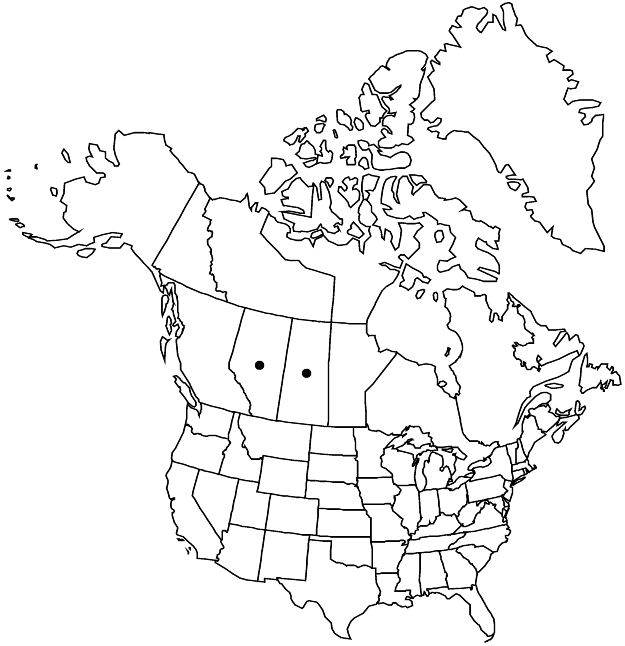Difference between revisions of "Crataegus rivuloadamensis"
J. Bot. Res. Inst. Texas 1: 1065, plate 7.3a, fig. 13. 2007.
FNA>Volume Importer |
FNA>Volume Importer |
(No difference)
| |
Revision as of 23:09, 16 December 2019
Shrubs or trees, 25–40(–50) dm, wide-branching. Stems: twigs: new growth dark reddish green, pubescent, 1-year old shiny, dark red-brown, 2-years old dark reddish and gray; thorns on twigs ± straight, 1-year old glossy, very dark red-brown, older dark gray, shorter conic, stout, 1.5–2.5(–3) cm. Leaves: petiole length 25–35% blade, eglandular or sparsely sessile-glandular, stipitate-glandular at leaf base, adaxial sulcus densely pubescent; blade ± elliptic or broadly elliptic to rhombic-elliptic, 2–4 cm at anthesis, 4–8 cm mature, base cuneate to narrowly cuneate, lobes 2–4 per side, max LII (0–)5–20(–25)%, lobe apex subacute to broadly cuspidate, margins finely crenate-serrate or serrate, veins 4–6 per side, hardly impressed, apex acute, abaxial surface glabrous or sparsely hairy young, veins appressed-scabrous, adaxial ± densely appressed-scabrous (indumentum persisting). Inflorescences 4–10-flowered; branches ± densely tomentose; bracteoles ± reddish, narrow, margins densely sessile-glandular. Flowers 17–21 mm diam.; hypanthium densely pubescent except sometimes distally; sepal color not recorded, broadly triangular, 3 mm, margins greenish, abaxial surface glabrous, adaxial pubescent; petals pale cream; anthers pink; styles 3–5. Pomes 1–5(–6) per infructescence, pale reddish purple, becoming deep red to reddish plum and burgundy, suborbicular to broadly turbinate, 10–12 mm, usually ± densely hairy; sepals ± patent to recurved, 4–5 mm; pyrenes 3–5, dorsally strongly grooved, sides plane to very shallowly concave.
Phenology: Flowering late May–early Jun; fruiting Aug–Sep.
Habitat: Thickets, under light shade of aspen
Elevation: 800–1200 m
Discussion
Crataegus rivuloadamensis is known only from the western half of the Cypress Hills and is most abundant at elevations above 1150 m. The extremely dark young wood and short and conic thorns show strong resemblance to species of the Eurasian sect. Sanguineae Zabel ex C. K. Schneider. The unpitted pyrenes are a marked difference. The petals appear to be pale cream rather than pure white.
Selected References
None.
